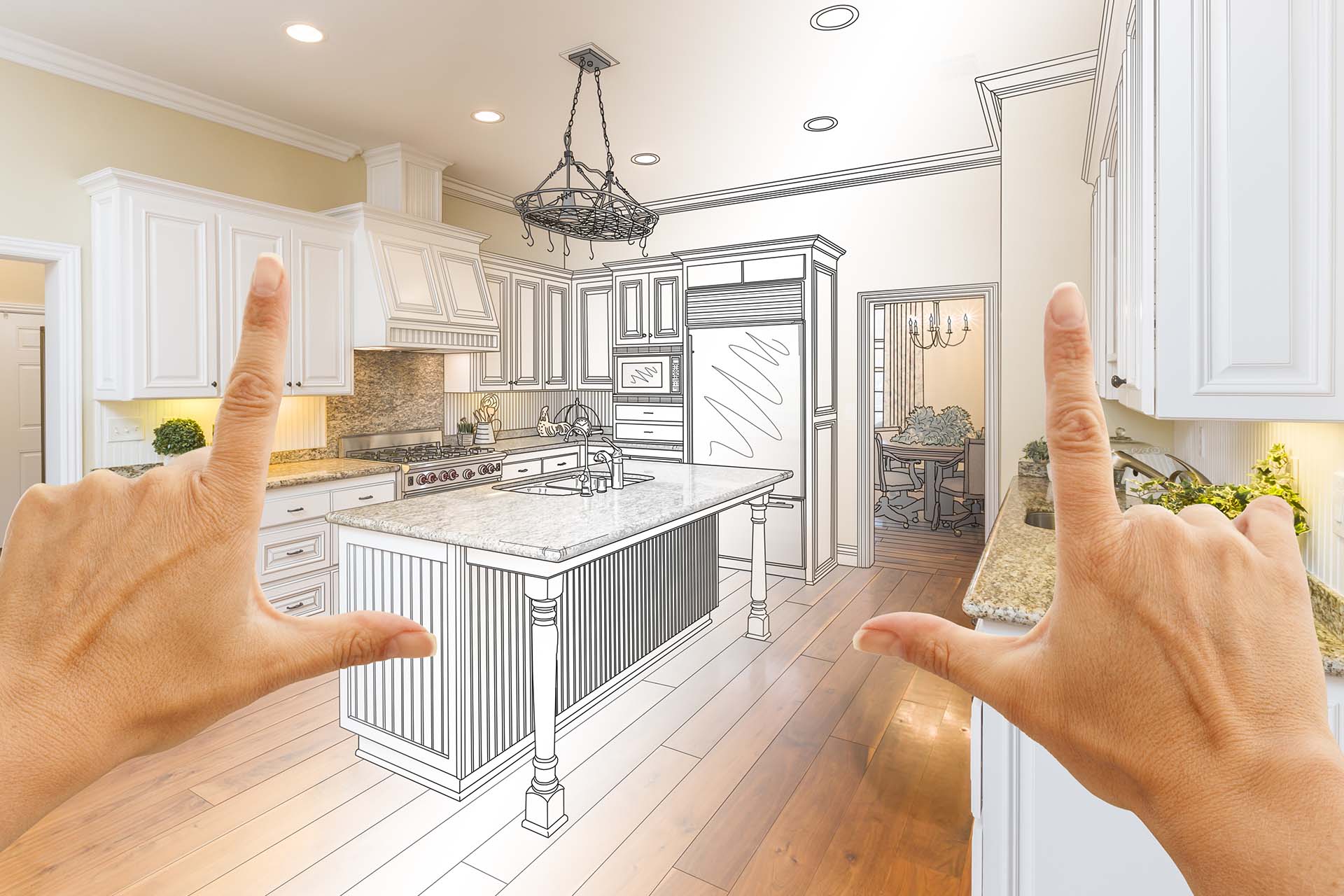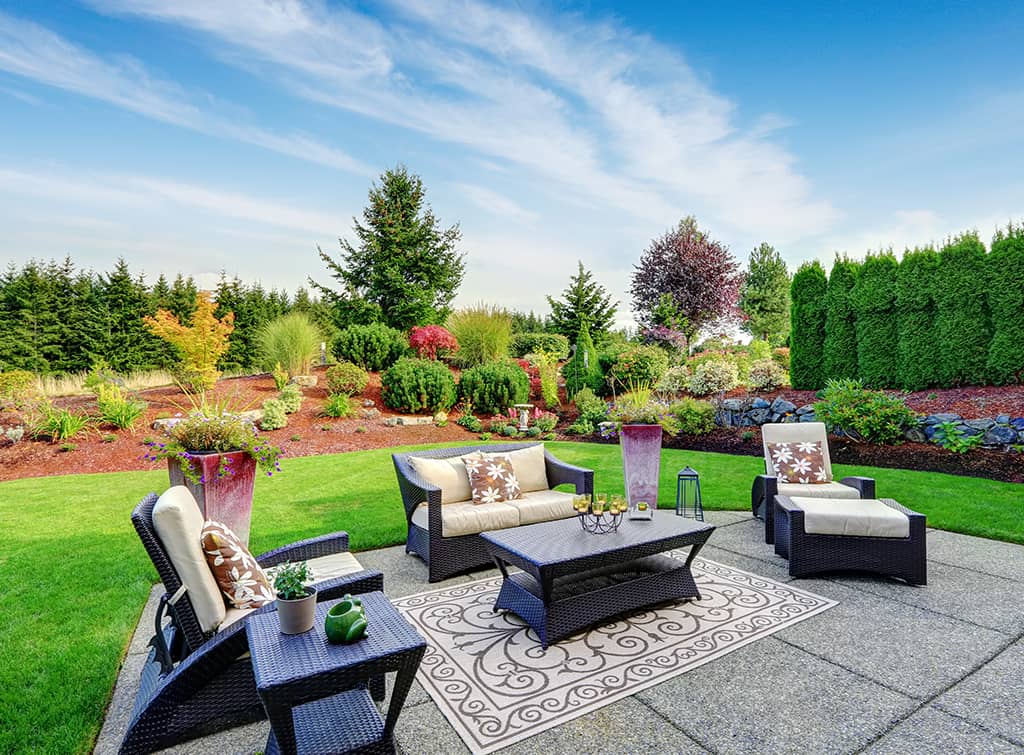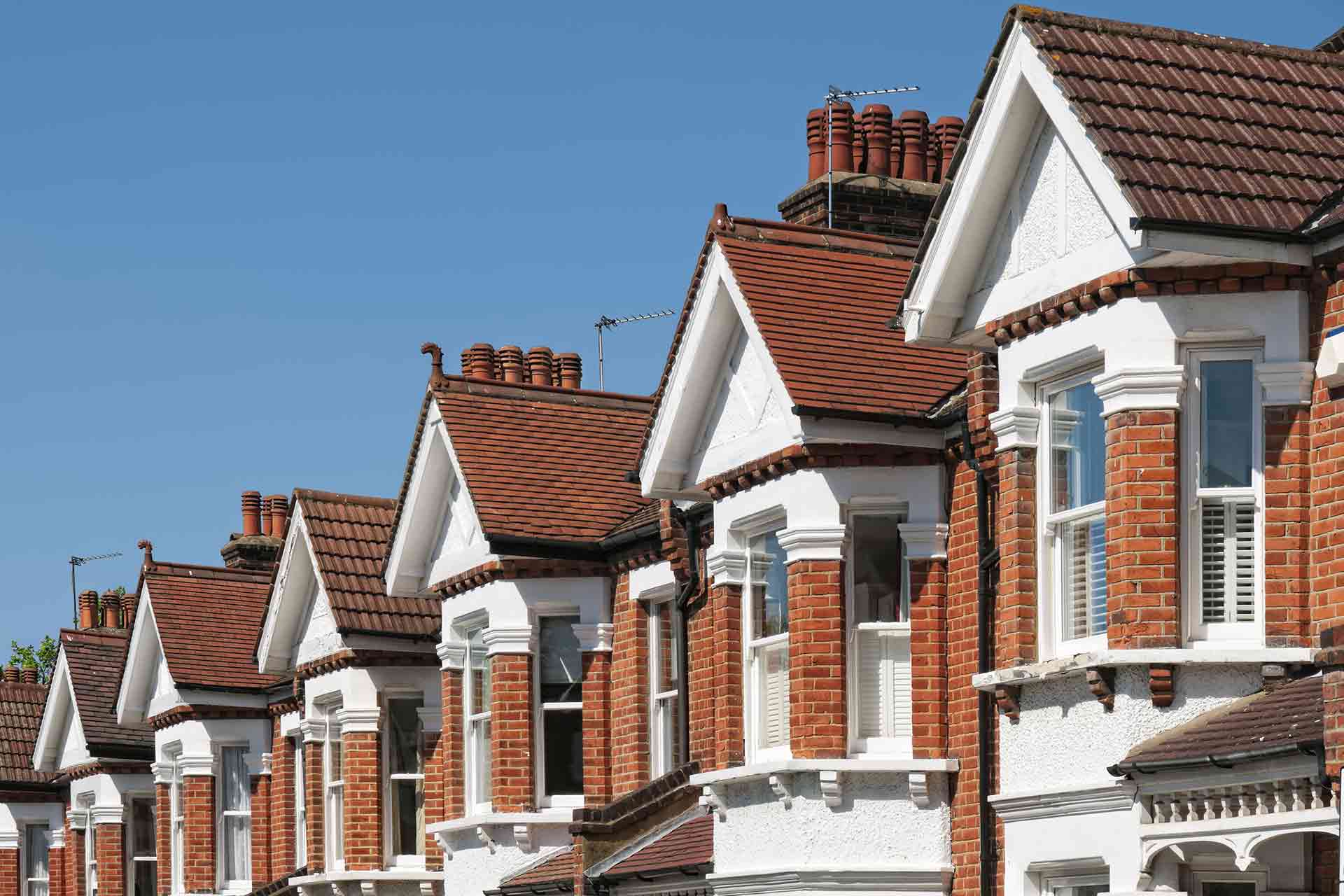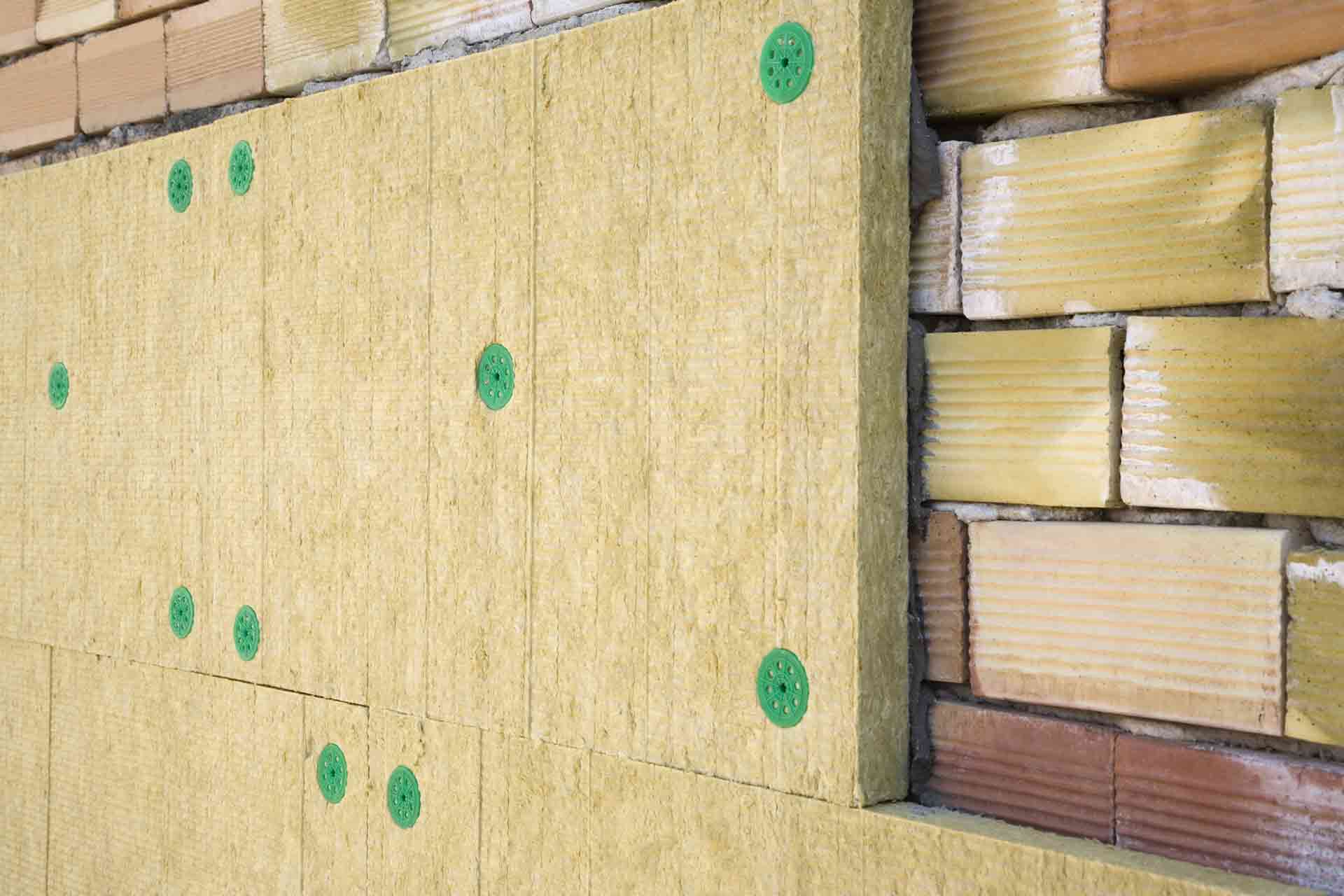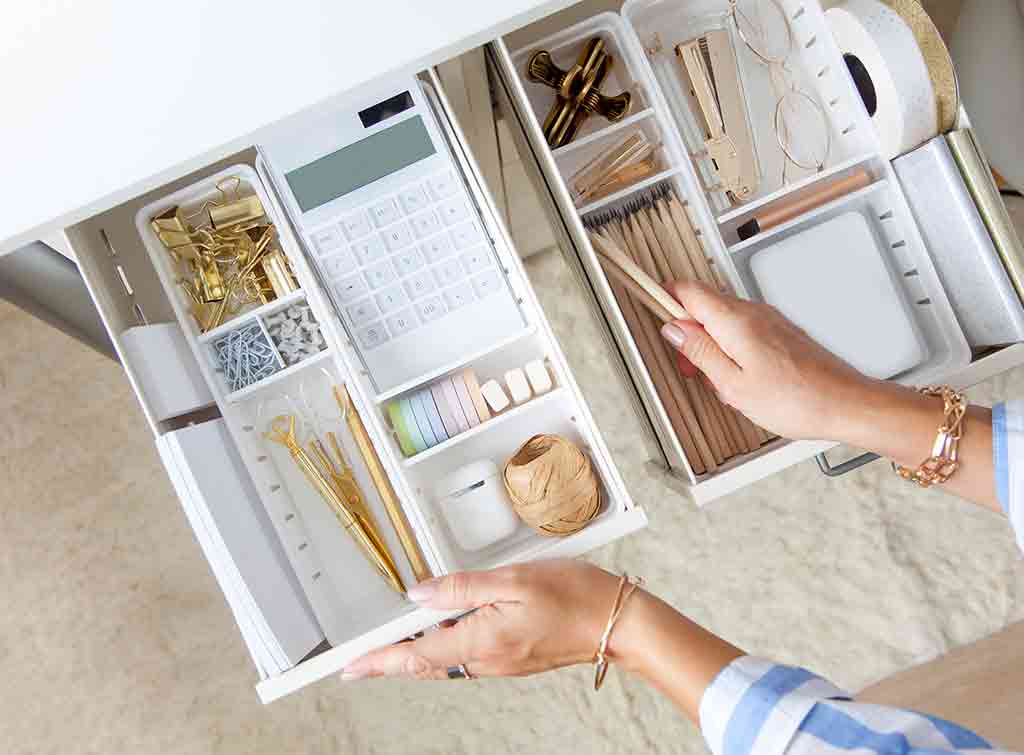Blog>Cost Guides>House renovation: Cost breakdown 2025
Last updated: 26 June 2025
House renovation: Cost breakdown 2025
Does your home need a new lease of life? Or are you buying a new property to renovate? To help you budget, we've estimated the cost of renovating a house.
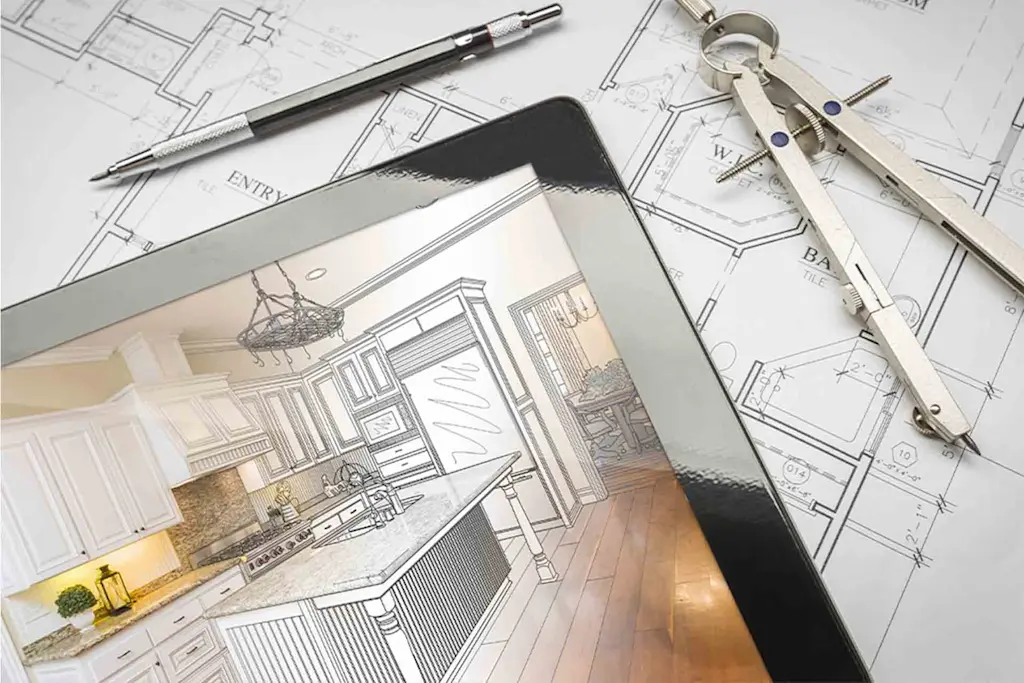
Fast Facts
The average cost of renovating a 3-bed house is £43,530 - £110,350
Add a 10-15% contingency to your budget for unexpected costs
Careful planning can prevent you from getting carried away and blowing your budget on expensive finishes
Renovating a house can be incredibly rewarding. But you'll need to have a handle on your budget.
The average cost of renovating a house varies on the size of the house, labour costs, materials and the type of house renovation. The average renovation cost for a 3 bedroom house in the UK is, you can expect to pay anywhere between £43,530 - £110,350.
Here, we'll break down the typical cost to renovate a house to help you get started.
How much does it cost to renovate a house in 2025?
When calculating house renovation costs, it's important to remember that every house renovation is unique. So, the total cost of renovating a house will vary, which makes budgeting important.
However, for the purposes of this guide, we'll focus on the average cost of renovating a 3-bedroom house.
| Item (for an average 3-bed house) | Cost range (+VAT) | Average cost (+VAT) |
|---|---|---|
| New gas supply | £500 - £2,500 | £1,500 |
| New heating system | £3,000 - £8,500 | £5,500 |
| Rewiring | £4,000 - £8,500 | £6,250 |
| Windows | £2,500 - £8,000 | £5,250 |
| Replaster walls | £10,000 - £15,000 | £12,000 |
| Replaster walls & ceilings (re-skim existing) | £5,000 - £12,500 | £8,750 |
| Replaster walls & ceilings (hack off existing) | £16,000 - £32,000 | £26,500 |
| Replace skirting throughout | £2,200 - £3,800 | £3,000 |
| Paint walls & ceilings | £5,000 - £7,000 | £6,000 |
| New cloakroom w/c (including tiling) | £1,500 - £2,500 | £2,000 |
| New kitchen | £7,000 - £25,000 | £17,500 |
| French doors | £1,500 - £3,500 | £2,500 |
| Kitchen extension (12 m2) | £15,000 - £24,000 | £19,500 |
| Skirtings for new extension | £200 - £500 | £350 |
| Knock down walls | £500 - £3,500 | £2,000 |
| Damp proofing course | £500 - £5,000 | £2,750 |
| New roof | £6,500 - £18,000 | £12,250 |
| TOTAL | £43,530 - £110,350 | £76,690 |
| Last updated: July 2024 Our costs are ballpark averages - get a local tradesperson to quote now | ||
To find out more about the typical costs for your project, a smart first step is to speak to people who renovate homes for a living.
House renovation job estimator tool
Use our handy job estimator tool to calculate job costs for renovating your home.
Need help working out cost? Our job estimate tool calculates the costs for you.
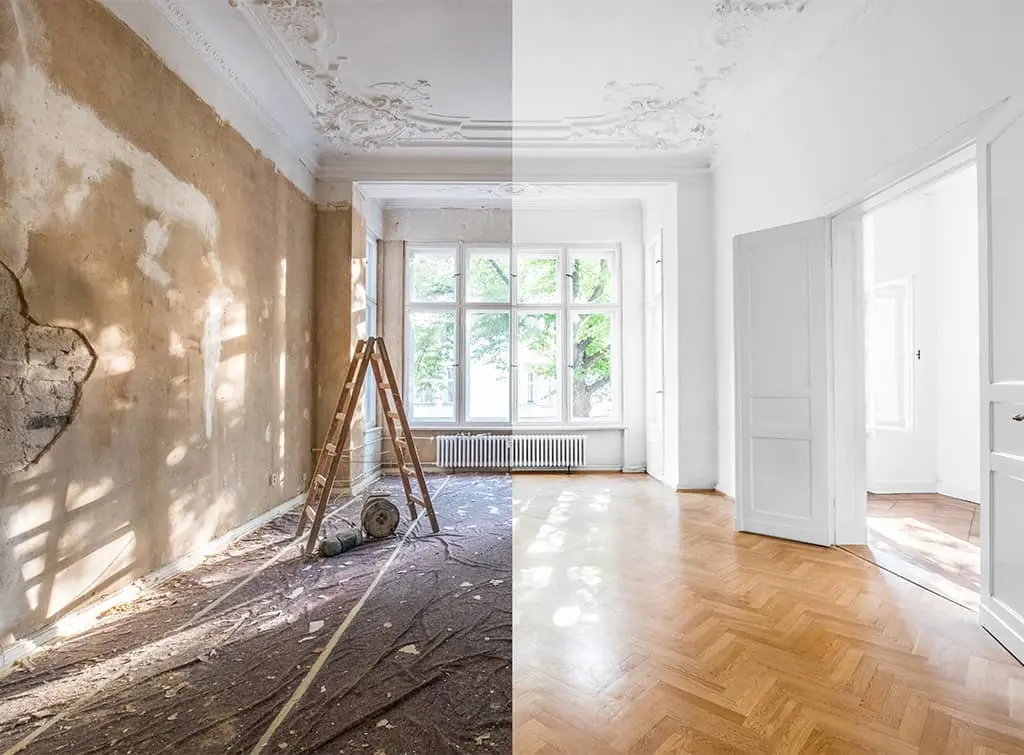
House renovation costs in the UK
Every house is different and will have different needs when it comes to renovating.
To calculate house renovation costs, make a list of all the jobs you think need doing on your property. One option is to start with a full house survey to make sure you know all the issues that need to be dealt with.
Once you have a to-do list of everything that needs to be changed, repaired or replaced, you can speak to checked tradespeople to get quotes for each of these jobs.
From there, you can calculate a full house renovation cost in the UK and budget for your home renovation accordingly.
House renovation price list
Here is a rough renovation price list covering some of the typical jobs you may need to budget for during your house renovation.
Central heating installation
A new heating system could cost about £5,500. This includes a combi boiler and radiators.
New gas supply
If you need a new gas supply, you could be looking at around £1,500, depending on the route of the supply. There may be additional costs if you need to do any major work to extend the gas supply line.
Electrical rewiring
The cost of rewiring a house is in the region of £6,250. That price will depend on the complexity of the electrical system and the size of your property.
Door and window replacement
Installing a new set of windows can range from £2,500 - £8,000. The average cost is about £5,250.
Replastering the walls
Replastering walls will add a cost of between £10,000 - £15,000 to your total renovation budget.
Downstairs WC installation
Installing a new toilet will usually cost around £2,000. This includes tiling for the floor, distribution pipework and waste.
If the tiling isn't disturbed when you install your new loo, your costs may be lower. However, if you need a new room to be built from scratch to house your downstairs toilet, you'll need to factor in additional costs.
For instance, you'll need to budget for stud walls, a door, painting and any other fixtures such as a radiator.
Kitchen installations
Renovating your kitchen? A new kitchen could cost between £7,000 - £25,000. This typically includes the cost of design, materials and fitting.
Bathroom installations
Most homeowners will need to renovate and modernise a dated bathroom. The average cost of installing a new bathroom is around £7,000.
French door installations
If you’re looking to install French doors, you’ll need to factor in a cost of about £2,500. This should cover the doors, lintels, brickwork and plasterwork.
House extensions
Many homeowners incorporate a kitchen diner extension into their renovation plans. A 4-metre kitchen extension with around 12m² of floor space and a flat roof costs on average £17,500.
If you need to add matching skirting boards as part of the kitchen extension, they’ll cost around £350. For more detailed house extension costs, read our dedicated guide.
Structural construction services
If you’re renovating a house, the likelihood is you’ll want to knock down walls - perhaps as part of plans to create an open-plan kitchen.
The average cost of knocking down walls is about £2,000.
Damp proofing installation
Many older homes that haven't been renovated for a long time will have problems with damp.
The average cost of a damp proofing course is around £2,750.
Roof refurbishment and installation
If your renovation property needs a new roof, you're looking at an average cost of £12,250.
If, on the other hand, you can get away with repairing the existing roof, you can expect to pay between £210 and £465 per m².
Home renovation labour costs
House renovations typically require lots of different tradespeople, who'll each come at a different cost.
Most tradespeople will charge a daily rate, but it’s worth confirming with each one how much they charge and whether they charge per hour, per day or per job.
| Tradesperson | Range - Low (per day) | Range - High (per day) | Average cost (per day) |
|---|---|---|---|
| Plumber | £250 | £400 | £325 |
| Electrician | £250 | £400 | £325 |
| Roofer | £200 | £250 | £225 |
| Double glazing installer | £200 | £250 | £225 |
| Plasterer | £200 | £250 | £225 |
| Carpenter | £200 | £250 | £225 |
| Tiler | £200 | £250 | £225 |
| Painter and decorator | £150 | £250 | £200 |
| General builder | £200 | £250 | £225 |
| Labourers | £150 | £180 | £165 |
| Apprentice | £120 | £150 | £135 |
| Last updated: May 2024 Our costs are ballpark averages - get a local tradesperson to quote now | |||
The average day rate for plumbers and electricians is around £325. Meanwhile, general labourers and trainees tend to charge between £135 - £200 per day.
Many of the other tradespeople you're likely to need - such as roofers, plasterers, carpenters and tilers will charge a similar amount - roughly £200 - £350 per day. However, their exact prices will vary depending on their level of experience, the complexity of the work and your location.
It's also worth checking with your tradespeople how long they think each job will take, so that you can work out a more accurate cost for the work.
For example, installing a new central heating system and boiler will take between one and two weeks. So, you'll need to factor in around £3,000 or more for labour.
Meanwhile, fully rewiring a house will take around 6-15 days, depending on how much work is needed and the size of your property. So, you'll need to budget a minimum of £2,100 for an electrician.
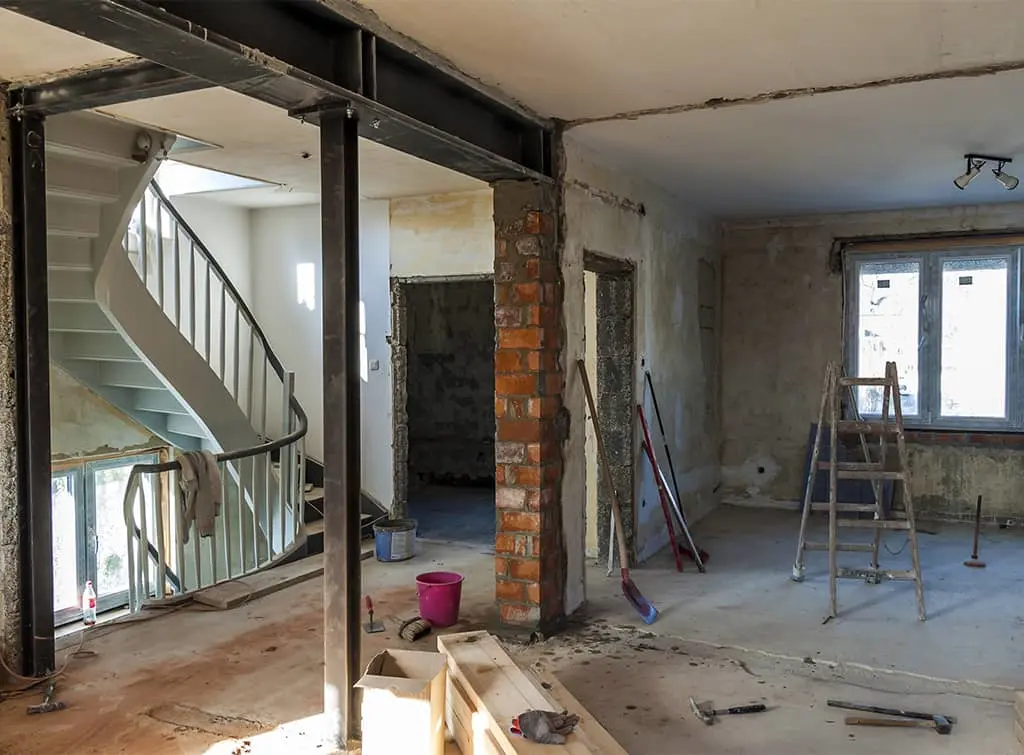
Factors affecting the cost of home renovation
The list of jobs and costs for a house renovation can be long, and it'll be influenced by many factors. Some of the main ones are:
Size of the property
Age and condition of the property
Complexity of renovation
Any structural work
Any building extension work
Quality of materials, fixtures and finishings
Decoration
Where you live
While one property might only need superficial work like reskimming and decorating, another might need major structural work.
So, the best way to get an accurate home renovation cost is to contact local tradespeople. Use our free directory below to find a checked renovation contractor covering your local area.
Hidden house renovation costs to watch out for
In addition to the obvious costs of structural work, installations, and decorating, there are some other costs that can quickly add up but sometimes get forgotten during the budgeting process.
Surveys and planning application costs
If your renovation project involves structural work or building extensions, you’ll need to have surveys done and pay for planning applications. The more extensive the work, the higher the cost.
Stamp duty and legal costs
If you’re buying a property to renovate, don’t forget to factor in stamp duty and solicitor costs.
If it’s a second property, then stamp duty will be charged at a higher rate. But if you sell your first property within 36 months, you’ll be eligible for a refund.
Pssst! Is this your first property? Then check out our detailed first-time homebuyer checklist.
Rent costs
If you're carrying out an extensive renovation, it might be hard to live in the property at the same time.
If you’re renting before moving into your renovated home, or if you need to find temporary accommodation, you’ll need to pay rent during the renovation process.
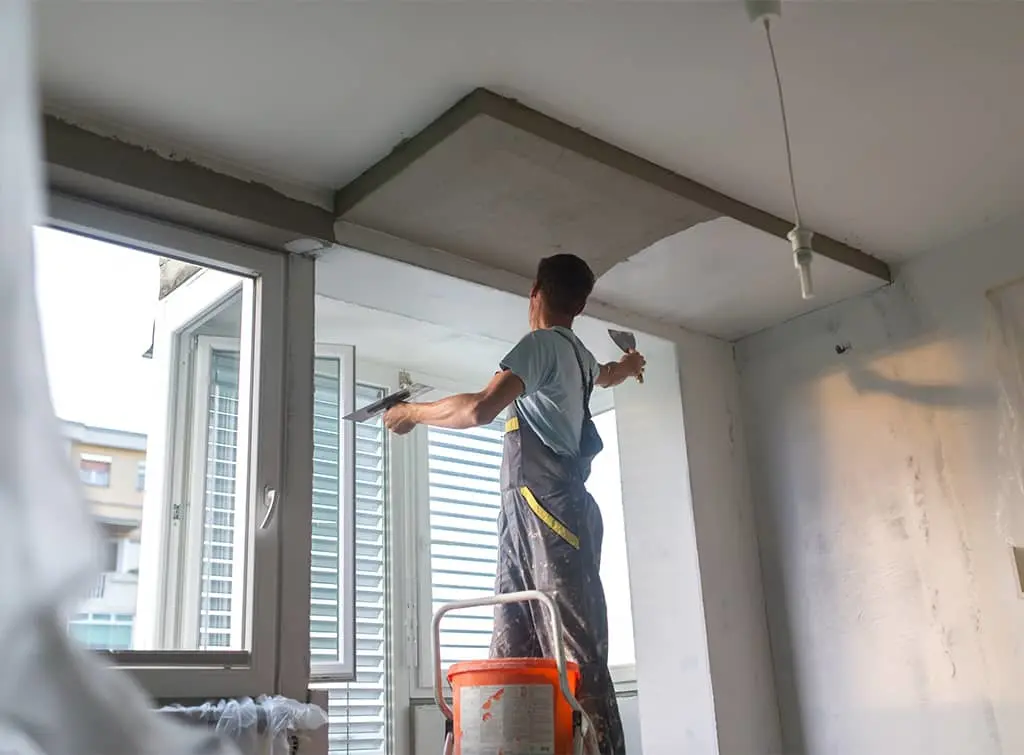
Managing house renovation costs in the UK
Renovating a house can be expensive, and unexpected costs can crop up. So, how do you manage the cost of renovations, and make sure that you don't exceed your maximum budget for your house renovation? Here are our top tips.
Build in a contingency plan
With any large project, it’s important to factor in a contingency to cover unexpected costs. Discoveries like asbestos, dangerous wiring or rotting beams can all add hefty costs to your project.
It’s sensible to factor in an additional 10-15% on top of your total budget for contingency.
House renovation costs spreadsheet
A handy way to keep track of all your home renovation costs is to create a spreadsheet for the project. That way, you can note all the quotes and cost estimates you receive from tradespeople to plan your budget.
You can also use the same spreadsheet once the renovation work starts to track your spending throughout the lifecycle of the project.
One of the keys to keeping costs down in a house renovation project is knowing what you're spending, where and when. Avoid going over budget by managing all your costs in one place.
Be honest about your budget
As well as choosing a checked tradesperson, t's important to be open and honest about your budget.
This will allow tradespeople to work with you to set a realistic expectation for what you can achieve, taking into account your house renovation ideas and your budget.
The best ways to finance and budget for home improvements
Transform your living space with our guide to the best ways to finance home improvements. With tips on budgeting plus loan and mortgage guidance.
Explore funding options
Most people choose to finance their home improvements through savings. If you're able to wait until you've saved up enough money, this may be the right option for you, as it could prevent you from having to pay interest rates that come with other kinds of financing.
Other options include loans (secured or unsecured), credit cards, home improvement mortgages and borrowing from a friend or family member. Whatever option you choose, it pays to think ahead and consider how you will be able to afford any repayments.
Don't get yourself into a situation where you're undertaking renovations that are out of your means. Which brings us onto...
Plan extensively
One of the most common mistakes that leads to homeowners blowing their budget is getting carried away with expensive finishing touches once the renovations are underway.
To prevent this from happening, plan as much as possible beforehand. Try to decide on all your finishing touches upfront so that you can't get carried away in the moment!
Get multiple quotes
It's a good idea to get at least three like-for-like quotes each time you're looking for a tradesperson to complete an element of your house renovation.
Not only will this help ensure that you're paying a fair and competitive price for the work. But it will also give you the opportunity to meet and get a feel for a range of companies.
Our request a quote feature is perfect for getting quotes. Just post details about the job you want doing, and we’ll send it out to Checkatrade tradespeople covering your local area.
Alternatively, enter your postcode into the box below to explore checked home renovation services and get a quote.
Home renovation cost checklist
Plan, plan, plan – it’s important to think about all the details for your renovation and make a list of what you want to include in the project
Calculate a total budget and add 10-15% contingency
Speak to reviewed tradespeople for practical tips
Contact your local council to discuss any planning requirements
Take your time and speak to a few tradespeople before making a decision. It's worth the effort
Head over to our extensive house renovation checklist for more detailed steps.
Or, enter your postcode into the box below to start your search for a checked renovation contractor today.
Home renovation cost FAQs
Can renters renovate a house?
Generally, no, you can’t make big changes to a rented home without your landlord’s say-so. Most contracts have rules that stop you from making modifications, so it’s always best to check before you start any work.
If you’re thinking about a renovation or even a small refurbishment, have a chat with your landlord first. That way, you’ll avoid any surprises (or awkward conversations) down the line.
How can I save money on a house renovation?
Renovating your home doesn’t have to break the bank. Here are a few ways to keep costs in check:
Prioritise the big stuff first – Start with structural work to keep your project on solid ground
Reuse where you can – Reclaimed or second-hand materials can save money and add character
Get a few quotes – Don’t settle for the first number you hear. Compare quotes from different contractors to find the best fit for your budget
Renovate in phases – Spreading the work out over time can help manage costs
Expect the unexpected – Build in a little wiggle room for those surprise costs that always seem to pop up
Taking these steps can help make your renovation smoother, and easier on your wallet.
What’s the most expensive part of a home renovation?
Kitchens and bathrooms usually top the list, and it’s no surprise why. They often need pricey materials, lots of labour, and sometimes even a full plumbing overhaul.
If you’re planning a kitchen or bathroom upgrade, it’s worth knowing that plumbing work can add a fair bit to your budget, especially for high-end finishes.
Need help finding the right person for the job? Use our handy tool to search for checked tradespeople who offer plumbing services.
What order should you renovate a house?
If you’re taking on a full house refurbishment, it pays to have a plan. A good order can save time, money, and a lot of headaches.
Here’s a simple guide to help you get started:
Sort the structure – Get any major building work out the way first. That means fixing walls, adding extensions, or sorting out the roof.
Update plumbing and electrics – Once the structure’s sorted, move on to the essentials like plumbing updates, electrical rewiring, and heating systems.
Replaster and prep – Time to get those walls smooth and ready for the next steps.
Fit the floors and tiles – Floors go in before you start decorating, and tiling gets done after the messy jobs are finished.
Add the finishing touches – Now it’s time for a painter and decorator to bring your vision to life.
Planning it step by step makes the whole thing easier — and gets you closer to that finished home you’ve been dreaming of.
What’s the difference between restoration and renovation?
Let’s break it down:
House restoration is all about bringing a building back to its original state — preserving the character, repurposing old materials, and keeping the charm intact. You’ll usually see restorations on buildings with historical significance, where the aim is to protect and celebrate the past.
House renovation, on the other hand, is about updating or improving what’s already there. This might mean reworking the layout, adding new features, or modernising the design to make it more practical for everyday life.
How can I reduce house renovation costs?
A house renovation can be exciting, but it’s easy to get carried away and spend more than you planned. That’s why setting a budget is so important — it helps you avoid unexpected costs and keeps your project on track.
Here are a few tips to help you budget like a pro:
Plan carefully: Know what you want to achieve and break it down into clear steps.
Tackle it in stages: If your budget’s tight, think about renovating room by room.
Shop around: Get a few quotes and compare prices to make sure you’re paying a fair rate.
Think about timing: Off-peak seasons can save you money, but be prepared for potential delays if you’re working in winter.
A bit of planning now can save you a lot of hassle later. And when you’re ready to find the right tradesperson for the job, we’re here to help.
